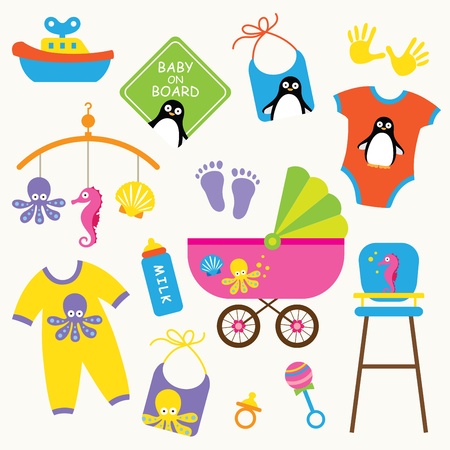1. Portability and Convenience
When choosing between a lightweight stroller and a full-size stroller, portability and convenience play a major role. Parents on the go need a stroller that fits their lifestyle, whether its for quick errands or long walks in the park.
Foldability
One of the biggest differences between lightweight and full-size strollers is how easily they fold. Lightweight strollers are designed to be compact and often feature a one-hand fold mechanism, making them ideal for travel and public transportation. Full-size strollers, while offering more features, can be bulkier and require more effort to fold.
Weight Differences
The weight of the stroller can affect how easy it is to carry and transport. Lightweight strollers typically weigh between 10-15 lbs, making them easy to lift into car trunks or overhead compartments on airplanes. Full-size strollers, on the other hand, can weigh anywhere from 20-30 lbs or more, which may make them less convenient for frequent travel.
Storage Space
Storage is another key factor when considering portability. Lightweight strollers take up minimal space and fit well in small cars or crowded closets. Full-size strollers require more storage room due to their larger frames, but they often come with extra compartments for baby essentials.
Comparison Table: Portability and Convenience
| Feature | Lightweight Stroller | Full-Size Stroller |
|---|---|---|
| Foldability | Compact, often one-hand fold | Larger, may require both hands |
| Weight | Around 10-15 lbs | Around 20-30+ lbs |
| Storage Space Needed | Takes up minimal space | Larger frame requires more storage |
| Best For | Travel, quick trips, city use | Daily use, longer outings, rougher terrain |
If you prioritize portability and ease of use for short trips or travel, a lightweight stroller may be your best bet. However, if you need a stroller with more features and don’t mind the extra weight, a full-size stroller could be the right choice.
2. Comfort and Support
When choosing between a lightweight stroller and a full-size stroller, comfort and support play a big role in keeping your baby happy during outings. Each type of stroller offers different levels of cushioning, recline options, and space, which can impact how smooth the ride feels for your little one.
Cushioning and Padding
Full-size strollers typically come with extra padding and plush seats designed to provide maximum comfort. They often have well-padded harness straps and cushioned seating areas that make long rides more enjoyable for your baby. On the other hand, lightweight strollers prioritize portability over luxury, so they usually have thinner padding. While some models still offer decent cushioning, they may not be as plush as their full-size counterparts.
Recline Options
The ability to recline is essential for naptime on the go. Full-size strollers generally offer multiple recline positions, including a near-flat recline that allows infants to sleep comfortably. Some even come with adjustable footrests for additional support. Lightweight strollers, while convenient, often have fewer recline options. Some models only offer a slight recline or none at all, making them less ideal for younger babies who need extra neck and back support.
Space and Room to Grow
Full-size strollers are designed with spacious seating areas, making them suitable for growing babies and toddlers. They often provide more legroom and a wider seat base, ensuring your child has enough space to sit comfortably for extended periods. In contrast, lightweight strollers tend to have smaller seat dimensions, which may feel snug as your baby grows.
Comparison Table: Comfort Features
| Feature | Lightweight Stroller | Full-Size Stroller |
|---|---|---|
| Cushioning | Minimal padding | Plush, well-padded seats |
| Recline Options | Limited or no recline | Multiple recline positions (including near-flat) |
| Seat Space | Narrower and compact | Larger seat with more room to grow |
The Bottom Line on Comfort
If your priority is providing the coziest ride for your little one, a full-size stroller is the better option due to its superior cushioning, recline adjustments, and spacious design. However, if you need something lightweight for quick trips where comfort isn’t the main concern, a lightweight stroller can still get the job done efficiently.

3. Durability and Stability
When choosing between a lightweight and a full-size stroller, durability and stability are important factors to consider. The materials, wheel structure, and overall design play a big role in how well a stroller performs on different terrains and how long it lasts.
Materials and Frame Strength
Lightweight strollers are usually made with aluminum or plastic frames to keep them easy to carry. While these materials help reduce weight, they may not be as strong as the steel or reinforced aluminum used in full-size strollers. Full-size strollers often have sturdier builds, making them more durable for everyday use.
Wheel Structure and Terrain Adaptability
The type of wheels on a stroller affects how smoothly it moves over different surfaces. Lightweight strollers typically have smaller wheels made of plastic or foam, which work well on smooth sidewalks but may struggle on rougher terrain. Full-size strollers often come with larger, air-filled or rubberized wheels that provide better shock absorption and a smoother ride on various surfaces.
| Feature | Lightweight Stroller | Full-Size Stroller |
|---|---|---|
| Frame Material | Aluminum or plastic (lighter but less sturdy) | Steel or reinforced aluminum (more durable) |
| Wheel Type | Small plastic or foam wheels (better for smooth surfaces) | Larger rubber or air-filled wheels (handles uneven terrain well) |
| Terrain Suitability | Best for flat sidewalks and indoor use | Works well on grass, gravel, and uneven paths |
| Lifespan | Tends to wear out faster with frequent use | Built for long-term durability and daily use |
Stability and Safety Considerations
A stroller’s stability is key to keeping your baby safe. Since lightweight strollers are designed to be compact and portable, they sometimes have a higher risk of tipping over, especially when hanging bags on the handles. Full-size strollers have a wider base and heavier frame, which helps prevent tipping and provides better support for growing children.
Which One Should You Choose?
If you need a stroller for quick errands or travel, a lightweight option might be enough. However, if you plan to use the stroller daily on different terrains or want something long-lasting, a full-size stroller offers better durability and stability.
4. Features and Accessories
When choosing between a lightweight and a full-size stroller, the features and accessories can make a big difference in your daily convenience. From storage space to cup holders, sun canopies, and adjustable handlebars, each type of stroller offers different levels of comfort and functionality.
Storage Space
One of the biggest differences between lightweight and full-size strollers is storage capacity. Full-size strollers typically have larger baskets that can hold diaper bags, shopping bags, and other essentials. Lightweight strollers, on the other hand, often have smaller or more compact storage compartments.
| Feature | Lightweight Stroller | Full-Size Stroller |
|---|---|---|
| Storage Basket Size | Small to Medium | Large |
| Pockets for Extra Storage | Limited | More Available |
Cup Holders and Snack Trays
If you love having your coffee on the go or need a place for your childs snacks, cup holders and snack trays are important features to consider. Full-size strollers are more likely to include built-in trays and multiple cup holders, while lightweight models may require additional attachments.
Sun Canopy Coverage
A good sun canopy is essential for protecting your baby from harsh sunlight. Full-size strollers usually come with larger, adjustable canopies that provide better coverage. Lightweight strollers may have smaller canopies, which might not offer as much shade.
Adjustable Handlebars
If multiple caregivers will be pushing the stroller, adjustable handlebars can be a game-changer. Full-size strollers often feature height-adjustable handlebars for ergonomic comfort, whereas many lightweight models have fixed-height handles.
Add-On Accessories
The ability to customize your stroller with accessories like rain covers, footmuffs, and organizers varies by type. Full-size strollers tend to be compatible with more add-ons, while lightweight options may have fewer customization options.
5. Best Use Cases
Choosing between a lightweight stroller and a full-size stroller depends on your lifestyle and daily activities. Here’s a breakdown of when each type of stroller is the better choice.
Traveling with Your Baby
If you travel frequently, whether by plane, train, or car, a lightweight stroller is usually the best option. They are compact, easy to fold, and fit easily into overhead compartments or small trunks. Many lightweight strollers also have a carry strap, making them convenient for airports and public transportation.
Everyday Errands and Quick Trips
For quick outings like grocery shopping or running errands, a lightweight stroller is ideal. Its maneuverability allows you to navigate tight store aisles easily, and the lighter weight makes lifting it in and out of your car less of a hassle.
Long Walks and Day Trips
If you enjoy long walks in the park, visiting the zoo, or spending an entire day at an amusement park, a full-size stroller is often the better choice. The larger wheels provide a smoother ride over different terrains, and the extra storage allows you to carry essentials like snacks, diapers, and toys.
Newborns vs. Toddlers
Newborns need more support and comfort, which full-size strollers typically provide with features like reclining seats and car seat compatibility. However, as your child grows into toddlerhood and becomes more active, a lightweight stroller can be a great secondary option for convenience.
Comparison Table: Best Uses for Each Stroller Type
| Scenario | Best Stroller Type |
|---|---|
| Airplane Travel | Lightweight Stroller |
| Public Transportation | Lightweight Stroller |
| Everyday Errands | Lightweight Stroller |
| Parks & Outdoor Walks | Full-Size Stroller |
| Theme Parks & Long Outings | Full-Size Stroller |
| Newborn Baby Use | Full-Size Stroller |
| Toddler Convenience | Lightweight Stroller |
The right stroller depends on how you plan to use it. Some parents even choose to have both—a full-size stroller for comfort on longer outings and a lightweight stroller for quick trips and travel. Thinking about your daily routine will help you decide which one works best for your family.

